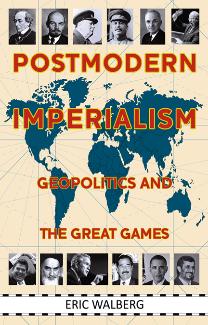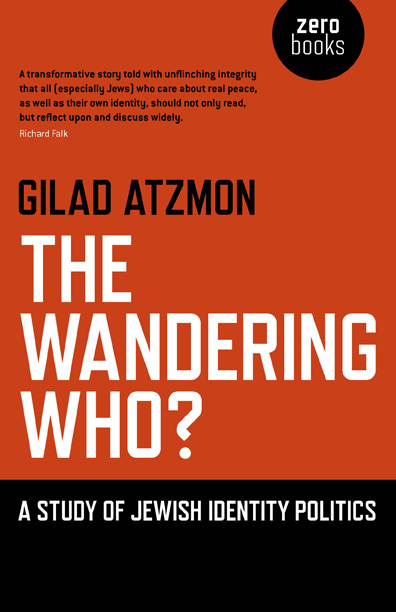 I. Let the Games Begin…Again…and Again
I. Let the Games Begin…Again…and Again
The great disaffected masses tell us that history is on the march and, as usual, guns and butter are the simpler issues. In America, support dwindles for a war that has lasted a decade. Drone missiles, each costing $100,000, kill “terrorists” in gutturally named, chicken-scratch places bewilderingly far from America’s hometowns, whose simple citizens ask where their taxes go. Costs of the Afghanistan war this year are the highest ever, $119.4 billion and counting.[1] Polls show historically deep disaffection with The System. The mask of America-First patriotism is falling, revealing an intoxicated self-grandiosity and will to power by renascent Bush-era neocons and cynical manipulations by the CEO caste and other one-percenters for more and more wealth, and whose sense of entitlement the victims of class warfare, lumpen proles and petit bourgeoisie alike, seem unable to stomach any longer.[2] Approval of the Republican led-by-gridlock Congress hovers around fifteen percent.[3] Ever-larger protests in other cities in America and internationally have extended those on Wall Street – protests even a year ago one would never have predicted – and “class warfare – rich against poor” appears on the protestors’ signs.
The disaffected might also ask why the US, as Eric Walberg notes in his extraordinary new book, has 730 American military bases in fifty countries around the globe, and why the US share of the world’s military expenditures is 42.8% while, by comparison, China’s is 7.3% and Russia’s 3.6%. The unavoidable irony is that the Pax Americana seems to be requiring endless war with no particular rationale behind it – and truly astonishing numbers of dollars are spent on behalf of war rather than at home. What may be fatally undermining credibility in America’s “transcendent values” has been the sense that as the facts filter down to the masses, the Empire’s new clothes appear to be the same as that of past empires. All empires have births and deaths – the US Empire will be no different. Internal contradictions of the US efforts to control the globe seem now to be sending things spiraling out of control.[4]
Books of Interest
Foreign Policy Review review of "Postmodern Imperialism"
- Written by Eric Walberg Эрик Вальберг/ Уолберг إيريك والبرغ
New Dawn review of "Postmodern Imperialism"
- Written by Eric Walberg Эрик Вальберг/ Уолберг إيريك والبرغ
 Eric Walberg’s acute insights into the contemporary global order raise many questions about the continued viability of the American and Israeli focus on wealth and power. Perhaps understandably, his interests and insights inspired by the Islamic world make him a penetrating commentator on peoples who are a product of Christian and Jewish tradition.
Eric Walberg’s acute insights into the contemporary global order raise many questions about the continued viability of the American and Israeli focus on wealth and power. Perhaps understandably, his interests and insights inspired by the Islamic world make him a penetrating commentator on peoples who are a product of Christian and Jewish tradition.
Walberg is a Canadian authority on the Middle East, Central Asia and Russia who writes for Al Ahram, the best known English language newspaper in the Middle East.
The Great Games-book review by Gilad Atzmon
- Written by Eric Walberg Эрик Вальберг/ Уолберг إيريك والبرغ
 Though the number of
critical voices concerning Israel, Zionism and Jewish power is growing
steadily, a clear distinction can be made on the one hand between
contributors who operate within the discourse and are politically
oriented, and others who transcend themselves above and beyond any given
political paradigm.
Though the number of
critical voices concerning Israel, Zionism and Jewish power is growing
steadily, a clear distinction can be made on the one hand between
contributors who operate within the discourse and are politically
oriented, and others who transcend themselves above and beyond any given
political paradigm.
The former category refers to writers and scholars who operate 'within the box,' accepting the restrictive measures of a given political and intellectual discourse. A thinker who operates within such a framework would initially identify the boundaries of the discourse, and then shape his or her ideas to fit in accordingly. The latter category refers to a far more challenging intellectual attempt: it includes those very few who operate within a post-political realm, those who defy the dictatorship of 'political-correctness', or any given 'party-line'. It relates to those minds that think 'out of the box'. And it is actually those who, like artists, plant the seeds of a possible conceptual and consciousness shift.
Atzmon on Jewishness: Jezebel’s legacy
- Written by Eric Walberg Эрик Вальберг/ Уолберг إيريك والبرغ
 The Wandering Who? A study of Jewish identity politics, gives a unique insider’s view of the Israeli mind. Its author explains to Eric Walberg that you can take the girl out of Jezebel, but you can’t take Jezebel out of the girl
The Wandering Who? A study of Jewish identity politics, gives a unique insider’s view of the Israeli mind. Its author explains to Eric Walberg that you can take the girl out of Jezebel, but you can’t take Jezebel out of the girl
Gilad Atzmon is a world citizen who calls London his home. He was born a sabra, and served as a paramedic in the Israeli Defense Forces during the 1982 Lebanon War, when he realised that “I was part of a colonial state, the result of plundering and ethnic cleansing.” He has wandered far since then, become a novelist, philosopher, one of the world’s best jazz saxophonists, and at the same time, one of the staunchest supporters of the Palestinian cause, supporting their right of return and the one-state solution. He now defines himself as a “proud self-hating Jew” and “a Hebrew-speaking Palestinian”. In 2009 Turkish Prime Minister Recep Tayyip Erdogan quoted Atzmon during a debate with Israeli president Shimon Peres, telling him at the World Economic Forum that “Israeli barbarity is far beyond even ordinary cruelty.”
Fear and Loathing in Las Vegas: reviews of Mihesua, Sheehi, Boyle
- Written by Eric Walberg Эрик Вальберг/ Уолберг إيريك والبرغ
Three books recently published by the American radical publisher Clarity Press reflect different aspects of racism in the US, which even under a black president is unfortunately alive and well, promoted in US policy at home and abroad -- if not officially:
Devon Mihesua, American Indians: Stereotypes and Realities
Stephen Sheehi, Islamophobia: The Ideological Campaign Against Muslims
Francis Boyle, The Palestinian Right of Return Under International Law
More Articles...
Page 12 of 17





